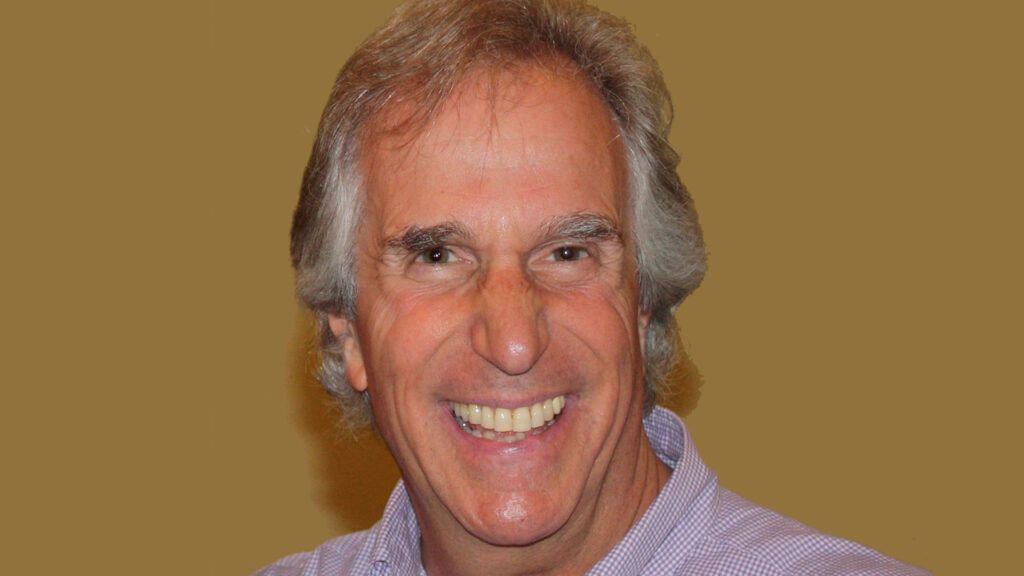For years I played one of television’s most popular characters, The Fonz—Arthur Fonzarelli, also known as Fonzie—that supercool guy on the hit series Happy Days who came on like Marion Brando in The Wild One but was really a street-sweet guy with a heart of gold.
Fonzie rode a motorcycle, and slicking-back his hair with a flick of his comb, set teenagers in the audience shrieking. Kids all around the country greeted each other with The Fonz’s familiar, “Hey … ay … AY!”
In fact, Fonzie became such a part of American life that the black leather jacket he wore on the show is now displayed as part of the permanent collection at the Smithsonian Institution in Washington, D.C.
READ MORE: SHIRLEY JONES ON FATHERLY LOVE
Over the years Happy Days and all its characters and cast became like a real family to me. And yet, sometimes there were doubts in my mind about Fonzie.
I was trained as a classical actor at Yale Drama School, and I’d always meant to be a “serious” actor—doing drama, not comedy. And there were times when interviewers asked me if I felt I was “compromising myself” by playing a character like The Fonz.
Well, I’d answer that every acting job is important if it’s conveying a worthwhile message and you adapt the part to your own talents and tastes. That it took every bit of my training and skill to make the character of Fonzie come alive on the home screen—and that it was more demanding to play comedy and bring it off successfully.
I meant every word of what I said, but occasionally I too would wonder: Was playing the character of Fonzie doing anybody any good? I’d been raised in the Jewish faith and still felt a real peace and closeness to God when I worshiped in a synagogue. Was I doing what I was really meant to do? Was I using my God-given talents in the best possible way?
I’m chairman of an annual event called the Special Arts Festival that’s held at the Music Center in Los Angeles. It’s sort of a special olympics of the arts, where children with mental and physical handicaps come to perform in their own amateur theatrics, to show their talents, and exhibit their artwork.
READ MORE: DONNA DOUGLAS ON GIVING HER BEST
The walls are filled with paintings done by the boys and girls, music rings out as they play instruments and sing songs. It’s an exciting time for everyone as the kids have a chance to display what they can do and become aware of the special contributions they can make.
Children are there from all backgrounds and all walks of life, and as I walk through the crowds, I do a lot of hugging. I hold the hand of a little girl in a wheelchair. I joke with a young boy without a leg.
Several years ago there was such a racket that it’s amazing I heard the voice at all. “Fonzie,” someone said. A small, shy voice in all the hubbub. “Fonzie!”
A little girl with large brown eyes and dark curls looked up at me. She was perhaps five years old—just staring at me. She didn’t say another word. She wouldn’t answer my questions. I just figured she was simply one of those shy ones that you see occasionally.
I told the little girl how glad I was to see her, then stood up and looked into the face of the woman who must have been her mother. But why were the woman’s eyes shiny with tears?
The crowd closed around us and l went on.
And then one day I got a letter—from the mother of the little girl. She told me all about her daughter—I’ll call her Claire. Claire was autistic. In the entire five years of her life, Claire had not spoken a single word. Until she called out… “Fonzie!” Somehow the character of Fonzie had broken through to her, enabling her in that one mysterious moment to make a connection. With life.
The next year Claire was at the festival again, and I eagerly went to see her. This time her voice was firm and clear. “Hi, Fonzie,” she said.
“Claire’s teachers say she now has a vocabulary of over 50 words,” her mother told me. “They can’t believe what’s happened.”
Just at that moment Claire tugged at my hand. “My sister,” she said, pointing out the young girl standing close to us. “Hug her, too.”
Sometimes we wonder if we’re doing our best for God. We’re not sure if we’re doing what we should with the gifts He gave us. That little girl showed me that we simply have to do whatever comes our way to the best of our abilities. And trust that God will find His way to touch someone else with them.
And what is that trust called? It’s called faith.
Did you enjoy this story? Subscribe to Guideposts magazine.






